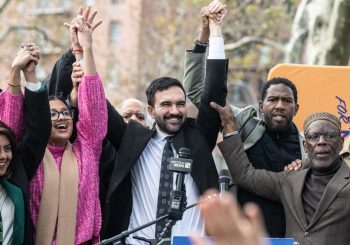In a landmark decision, the International Court of Justice (ICJ) has declared Israel’s occupation of Palestinian territories to be against international law. The court, based in The Hague, Netherlands, delivered its advisory opinion stating that Israel must cease settlement activities in the occupied West Bank and East Jerusalem, and urgently end its “illegal” occupation of these areas along with the Gaza Strip.
While the ICJ’s opinion is not legally binding, it holds substantial political significance. This is the first instance where the ICJ has pronounced on the legality of the 57-year occupation. The court has been scrutinizing the issue since early last year, following a request from the UN General Assembly for its view on Israel’s policies towards the Palestinians and the legal status of the occupation.
ICJ President Nawaf Salam, announcing the findings, stated, “Israel’s continued presence in the Occupied Palestinian Territory is illegal.” He further emphasized that “The State of Israel is under the obligation to bring an end to its unlawful presence in the Occupied Palestinian Territory as rapidly as possible.” The court also ruled that Israel should evacuate all settlers and compensate Palestinians for the damages caused by the occupation.
The ICJ’s opinion also condemned Israel’s settlement policies and exploitation of natural resources in Palestinian territories as violations of international law. Despite this, the advisory opinion faced opposition from Israel and a few other nations.
Israel has constructed approximately 160 settlements housing around 700,000 Jews in the West Bank and East Jerusalem since 1967, which the court deemed illegal. Israel, however, has consistently disputed claims that these settlements violate international law and maintains its claim to sovereignty over the whole of Jerusalem, a stance not supported by the majority of the international community.
Early Reactions
Riyad Mansour, the Palestinian ambassador to the UN, expressed gratitude for the ICJ’s ruling, calling it an “additional force…to add to the arsenal that we have in order to continue resisting this illegal occupation.”
Mansour stated, “What happened today is a significant step in the direction of ending occupation and attaining the inalienable rights of the Palestinian people, including their right to self-determination, statehood, and the right of the refugees to return.” Mansour mentioned that Palestinian officials would meticulously study the ruling to develop a comprehensive plan, aiming to produce a “masterpiece of a resolution” in the UN General Assembly reflecting this historic decision.
Meanwhile, in response to the ICJ ruling, Hamas and the Palestinian Islamic Jihad (PIJ) issued a joint statement urging the Palestine Liberation Organization (PLO) to withdraw its official recognition of Israel, saying this is a response needed against the Israeli Knesset’s resolution passed earlier this week which rejected Palestinian statehood.
Meeting in Doha, the leaders of the two armed groups asserted that Israel aims to erase the Palestinian issue and deny Palestinians their right to an independent state with East Jerusalem as its capital.
The PLO had initially recognized Israel in 1993, following the signing of the first Oslo Accord between Yasser Arafat and Israeli Prime Minister Yitzhak Rabin.







Comments (3)
[…] Western and Arab countries have yet to sanction Israel, despite the International Court of Justice confirming Israel’s occupation of Palestinian territories as illegal and the International Criminal Court […]
[…] Western and Arab countries have yet to sanction Israel, despite the International Court of Justice confirming Israel’s occupation of Palestinian territories as illegal and the International Criminal Court […]